The latest limited stay at home order leads to more food insecurity in Santa Barbara County
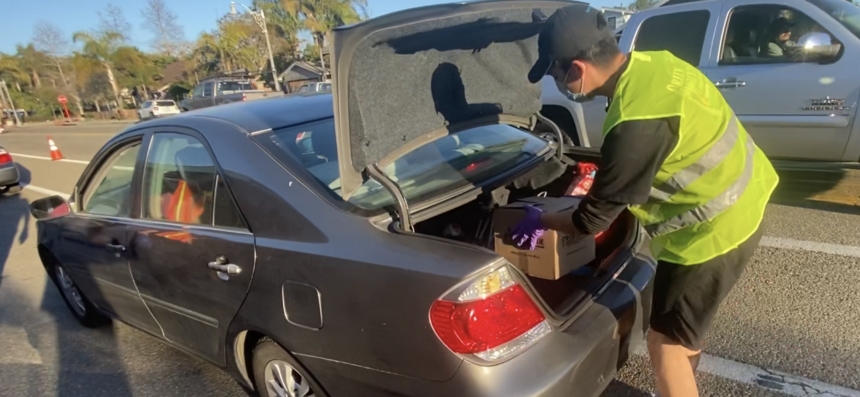
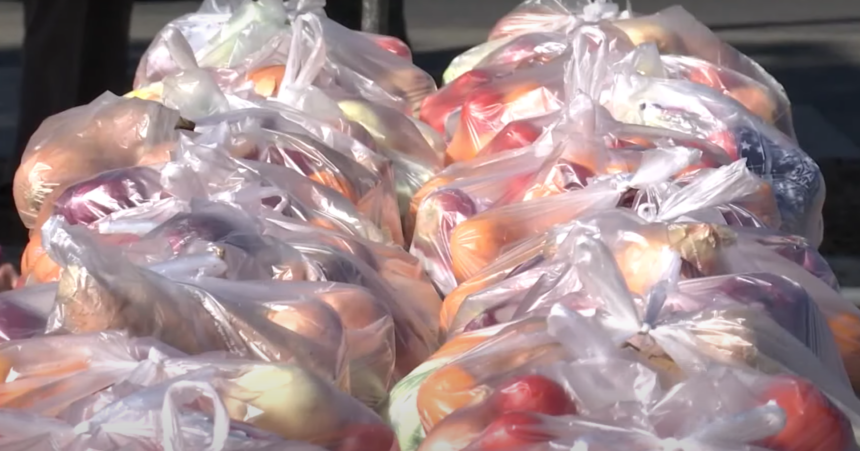
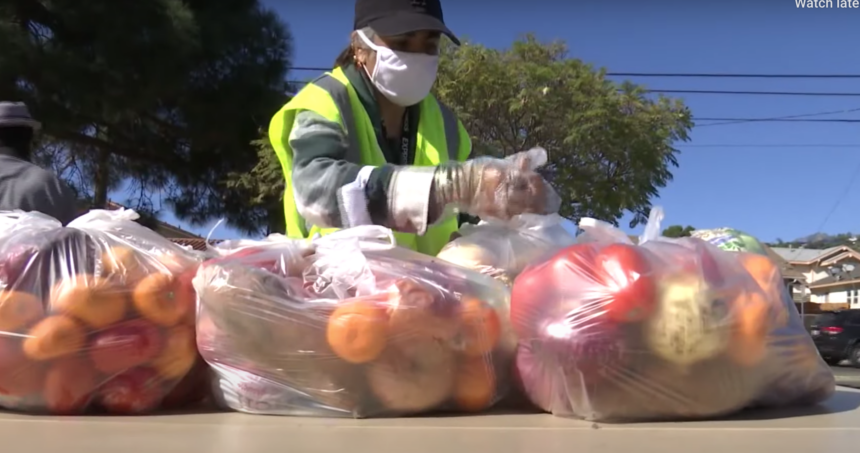
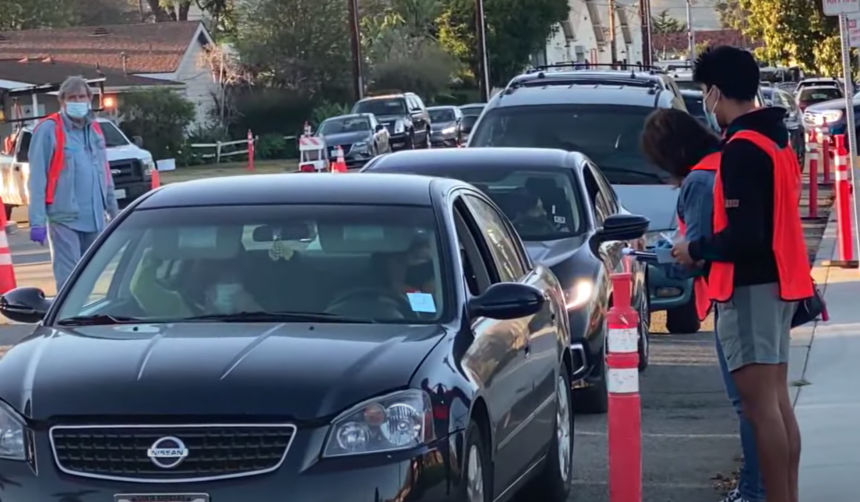
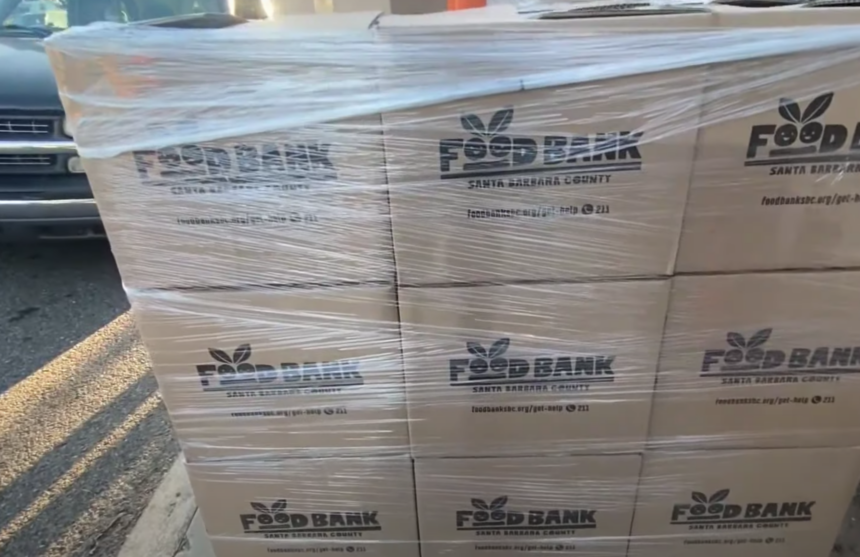
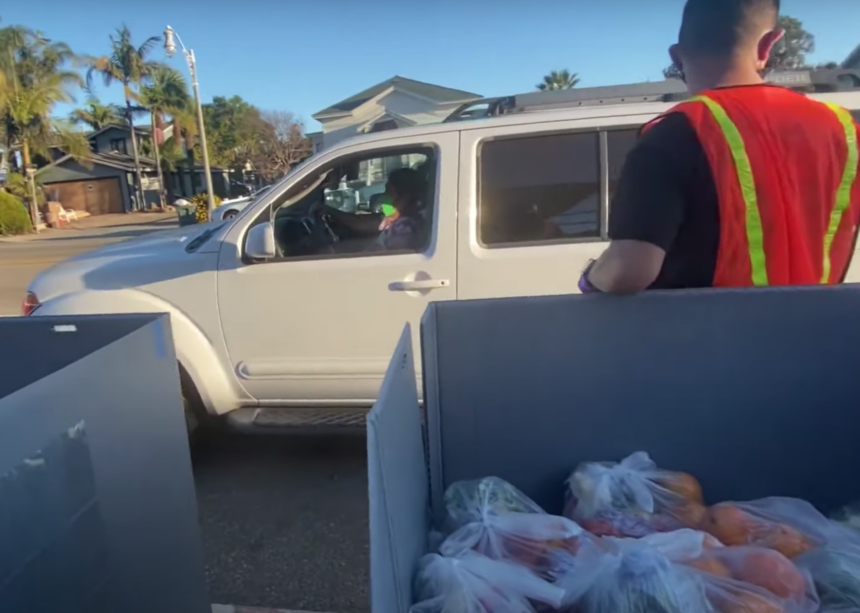
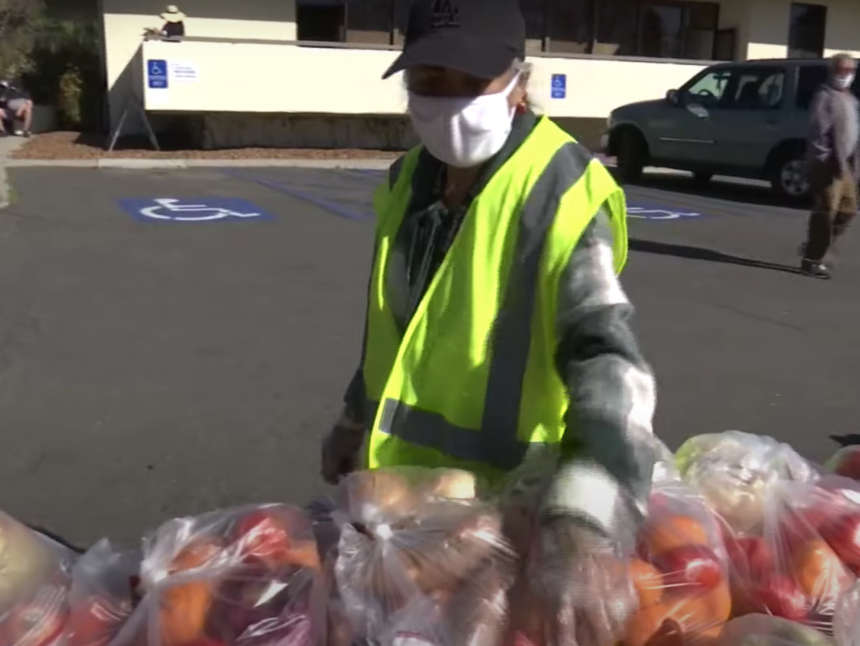
SANTA BARBARA, Calif. - With more people back at home, or unemployed, food insecurity is rising. With that, so is the need for ongoing food distributions.
The Food Bank of Santa Barbara County started seeing the rebound in demand late last year. In the early stages of the pandemic in 2020, there was a large-scale rollout of new distribution sites to meet the needs at that time. This phase is said to be as demanding and maybe even more.
In Carpinteria on Wednesday, a line of cars went around the block on Sixth Street with residents in need pulling up for a box of food and a large bag of produce.
This distribution is with the Carpinteria Children's Project. It takes place once a month.
Jaime Diamond is a Carpinteria Unified School District Board Trustee. She was helping out and said, "we've definitely noticed," the need has increased. Many people told her they were thankful to have a box of fresh food when money continues to be tight.
"Now that a lot of people are out of work again," she said the number of families in need has gone up.
She also says those who have gone back to work are not always getting full-time hours.
Chief Executive Officer of the Food Bank of Santa Barbara County, Erik Talkin said, "we've seen a real uptick in demand."
In these changing times, "we've had so many people who have been donors to the food bank in the past and now are having to come and get some food from us."
A food distribution site at the Franklin Center in Santa Barbara is open Tuesdays for nonperishables and Thursday for just fruits and vegetables.
Some of the bags were loaded up with onions, sweet potatoes, tomatoes, tangerines and cauliflower.
They expected 60 to 80 people to show up.
Richardo Venegas coordinates the distribution as part of his job with the Franklin Center and the City of Santa Barbara's Parks Department.
Some were there for the first time.
"It's sad because all that correlates with people being underemployed or losing hours," said Venegas.
Some people make personal calls because they have never gone through the program before. "We talk them through it and tell them 'hey, it's OK. It's here for you, you've already paid for it through your taxes.'"
At the Carpinteria site, which begins serving at 4 p.m., Diamond said, "We definitely see, as things reopen, there were fewer families coming."
It changes quickly when the work is cut back or cut out. Even those who are working can find themselves both in food and financial trouble.
"There was a misperception of 'hey people are going back to work' but they weren't getting the same amount of work that they needed," said Diamond.
In Southern Santa Barbara County, hospitality and tourism workers have been hit hard, and a large sector of the industry is out of work. To the north, it's those in farming.
Talkin said, "And they've been hit so hard that we have seen so many people from those industries [hospitality] and in the north with agriculture, it slows down in the winter. There's a lot of need there so there is a double-whammy hitting us at the moment."
Venegas says at times, it is emotional as the food is picked up. "They're in tears because they have no food in the fridge and they walk away with two or three bags of groceries. Now they know whatever they have at home, and this, they are going to make it through the week."
There are also resources for those who need to discuss the stress they are facing. The Carpinteria Children's Project Cares call line supports every Carpinterian in need. That number is 805-203-6648.
For more information, go to The Food Bank of Santa Barbara County or The Carpinteria Children's Project.
